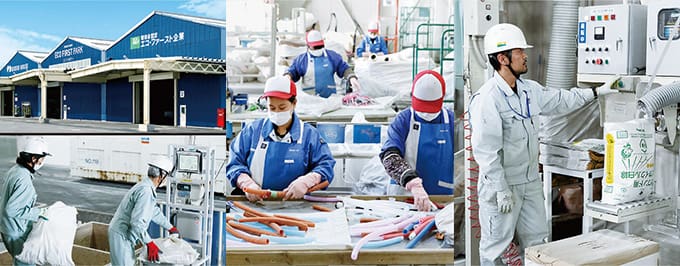
Circular Economy Action policies①
Achieving zero emissions throughout the product lifecycle
![]()
![]()
![]()
Effective zero emissions
→ Continuing and expanding our 100% zero emissions initiative throughout the production, construction, and maintenance phases
Activity report
Expanding zero emissions in an ongoing effort to achieve the 100% goal
The housing industry consumes a large amount of resources. Industrialized housing systems that produce the basic structural skeleton in a factory have proven to be effective systems for increasing resource productivity when used in combination with a built-to-order production system. Accordingly, we managed to achieve the zero emissions* standard in our plants in 2002. In 2004, we applied under the Wide Area Certification System, a special case of the Waste Disposal Law, thus becoming the first in the industry to be so certified. We fully adopted this system as we expanded the range and accuracy of zero emissions in the field, later obtaining certifications for new construction sites in 2005, maintenance in 2006, and renovation in 2007. In 2019, all 17 members of the Sekiwa Construction Group, our subsidiary, filed a joint application for the Wide Area Certification System, which was approved. This was aimed at adopting zero emissions policies for newly built wooden houses contracted by the Sekiwa Construction Group and will further strengthen our group-wide resource recycling system to complete our recycling business.
- Eliminating industrial waste incineration and waste sent to landfills for disposal.
Increasing the life of houses through circular business model based on in-group alliances

Sustainability Report 2020 TOP
Contributing to Health, Longevity and Wealth
Pursuing Customer Satisfaction through Our Value Chain TOP
Action policies ② Meticulous supply chain management for material procurement
Action policies ③ Enhancing production and distribution quality and improving operational efficiency
Action policies ④ Strengthening our workmanship and maximizing our construction capabilities
Basic concept & Action policies | Promoting Diversity
Basic concept & Action policies | Workstyle Reforms
Basic concept & Action policies | Human Resource Development
Independent Third-Party Assurance Report



